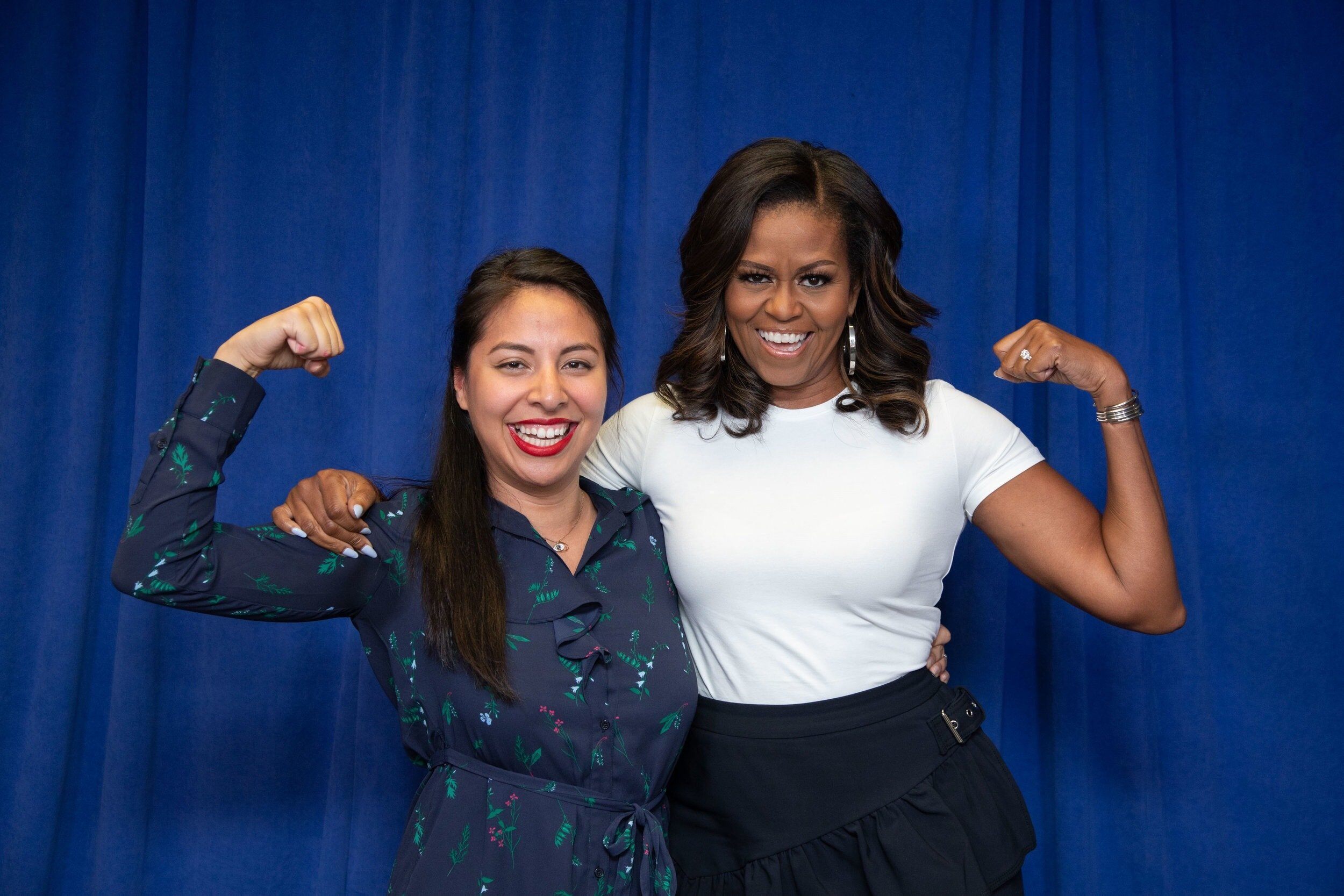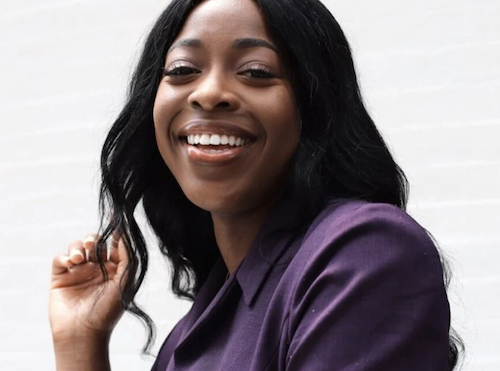Media Moves & Pandemic Pivots
A curated collection of can’t-miss news from this week, including 2021 media trends, industry inspiration and more. Sign up to get the TURNER Weekly...

Ximena N. Larkin’s career brings together a wide range of passions — writing, politics, food, communications and beyond. She’s had bylines in such outlets as The New York Times, Vice, and Thrillist. But she’s also the founder of the progressive public relations firm C1 Revolution. If that isn’t enough, in 2020, Larkin served as director of special projects for the DNC Convention and deputy director of Latino/Spanish media for the Biden For President campaign. In other words, she’s a very busy person. Ximena took a little time to chat with TURNER below ...
It was not too dissimilar from writing on a really tight deadline, in the sense that you are constantly being pulled in multiple directions. You need to come up with ideas fast, you need to find information fast. Obviously, it was high-pressure and high stakes, but it was really rewarding. It was just a nice opportunity to be able to help in an official capacity. I had somewhere to put all this anxious energy and funnel it into something that was productive, versus just getting stressed out by the news every day. I mean, I also did that (laughs), but I felt like I was doing something besides worrying and stressing my life away.
Ximena N. Larkin: Now that it’s over, I’m processing. A lot of what I’ve heard from people is that it’s just nice to have an adult leading the country. As far as what I expect, I think to a certain point, we’re already seeing that this is someone who has experience, empathy and kindness, and is doing what he said he was going to do. This is the most diverse cabinet that’s ever been nominated. The one before that was the Clinton administration in 1993. So, you’re already seeing a senior leadership team that is reflective of the country and the people that they’re leading. Mistakes will be made. That’s part of the process. But I’m really excited. I think there’s a lot of potential. We saw big ideas rolled out during the campaign and we’re already seeing a lot of them being fulfilled. I’m hopeful.
Ximena N. Larkin: That’s a really good question. My education is in journalism. But when I graduated, newsrooms were shrinking. So, I went into public relations and communication strategy. Over the course of a couple years, I realized that part of the reason I was really good at my job was because I knew the journalism side of things. When you have a 360-degree view of the industry and a more complete understanding of people’s different roles, you really have a respect for what everyone does. Then, you can work together to amplify them. It’s harder to do when you’re only in one lane. It’s a narrower lens. So, I absolutely think that part of my success is because I’ve been on both sides. I understand that when I get a rejection on a pitch that there are other factors at play. It could be an editorial calendar, it could be a budget issue, it could be that they want to focus on [a topic] later in the month. Understanding long-term goals coupled with short-term initiatives is really important.
As far as balancing, like everything, you make time for the things that are important to you. I love both sides. My clients on the communications side tend to be a little more corporate. It’s more reputation management. The things I write about are more cultural — travel, food and beverage. They don’t overlap with my clients. I come from a traditional journalism background where ethics rules. Any time that there is an intersection, I flag it for my editors so they can make the call. They won’t be surprised by anything. Being transparent is really important because this is an industry based on relationships. If people can’t trust you, then you’re kind of shot. But yes, my whole career has been in this space, and I really love it. I really like to learn and try new things.
Ximena N. Larkin: From the start of my career, I’ve been focused on people’s stories. I’ve written for Food & Wine and Munchies, but I don’t write about food. I’m not a reviewer. I’m not talking about recipes. For me, that’s not approachable. I didn’t grow up that way. My husband and friends make fun of me — I have a palette of a 10-year-old where I love cheese and pizza and pasta. I’m very content eating Greek salad and those things. I don’t need much more. So, I’ve used food as an entryway to tell people’s stories. Right now, there’s a lot of opportunity in that. It’s something that’s come up for a lot of people of color; now, there’s more of an interest in those spaces. Again, I’m still processing what this means because I’ve heard people say, “You know, I’ve been here this whole time.” There are challenges and people play different roles. For me, my role is to amplify those stories.  From the very beginning, my choice was to write about people who look like me and who come from homes like me. I was raised by a single mother. I was born in Mexico City. I don’t come from a family with a lot of resources. So, I’m drawn to places that are similar. I do get a lot of pitches about white guys doing stuff. Now, I’m married to a white guy, so I don’t have a problem with that. But at the end of the day, that doesn’t speak to my interests. One reason I pick certain stories is that they give me an “excuse” to explore my past. Ta-Nehisi Coates talks about this in Between the World and Me. The reason he got into journalism was because he didn’t know a lot of the things that people around him expected to know. Journalism gave him the excuse to ask questions. I felt that. I don’t know exactly what that means for the future, though. For me, the best way to change the world is to change your world. In understanding my place, I try not to judge other people or copy them. I look to myself and ask myself: “What can I do?” If that means I only publish 10 stories a year because I spent six months pitching one story that I felt very drawn to, then that to me is a win. I haven’t been chasing bylines all year long. That’s also why I have two careers, so that I can afford to do that.
From the very beginning, my choice was to write about people who look like me and who come from homes like me. I was raised by a single mother. I was born in Mexico City. I don’t come from a family with a lot of resources. So, I’m drawn to places that are similar. I do get a lot of pitches about white guys doing stuff. Now, I’m married to a white guy, so I don’t have a problem with that. But at the end of the day, that doesn’t speak to my interests. One reason I pick certain stories is that they give me an “excuse” to explore my past. Ta-Nehisi Coates talks about this in Between the World and Me. The reason he got into journalism was because he didn’t know a lot of the things that people around him expected to know. Journalism gave him the excuse to ask questions. I felt that. I don’t know exactly what that means for the future, though. For me, the best way to change the world is to change your world. In understanding my place, I try not to judge other people or copy them. I look to myself and ask myself: “What can I do?” If that means I only publish 10 stories a year because I spent six months pitching one story that I felt very drawn to, then that to me is a win. I haven’t been chasing bylines all year long. That’s also why I have two careers, so that I can afford to do that.
Ximena N. Larkin: In the last year, in relation to the cultural uprising, we’ve seen that publishing is not friendly to certain people. It’s not friendly to people who don’t have generational wealth or who come from a different environment. To live in New York City with a salary of $40,000 — can you do that? I don’t know. I can only speak to my experience — and even to this day, I probably couldn’t live full time off of being a writer. Some writers make money off of copywriting. That’s starting to get talked about a little more. There are paid positions that people have that just aren’t as flashy, so people don’t talk about them. I’ve done them and I’ve enjoyed some of them but at the end of the day, there are certain products I don’t want to promote. Again, that’s where my work on the PR side comes into play, because if I’m going to do that, I’m going to do it for things that I actually feel pretty strongly about. Like a lot of things, it’s what you make of it. Whatever is the right way for you is the right way to do it. There’s no one sure path. One person might have a full-time job, another might be full-time freelance, another might also do paid content. There are so many possible combinations. You just have to find the one that works for you. 
Ximena N. Larkin: It’s so hard for me to imagine too far into the future. We’re still in this pandemic and I’m still trying to survive it. That’s something I think about often because the people who are being disproportionately affected by the pandemic are Black and Brown people who we think of when we talk about diversity and inclusion. The most obvious thing is to change the infrastructure. What kind of support is being offered? What kind of money? I mean, money talks. These brands and companies are saying they’re going to change; the best way to do that is to make a financial commitment, whether that’s raising salaries or putting people of color in leadership.
I read a study a long time ago that the Black and Latino people who get put into senior leadership roles but are not given the support they need to succeed. And if and when they fail, then the decision makers point and say “Look, it didn’t work. We tried it, we listened to you and it didn’t work.” So, I’m pretty clear on that. I don’t want to see one-offs. Let’s keep trying. Let’s invest in those places. If HR is saying they need to fill a senior role and it takes a month or two longer – or six months – but it’s filled by someone who actually reflects the audience, that’s what should be done. It’s another financial commitment. It’s not always just writing a check to an organization. It’s also giving your team space to find people and fill those roles. It’s auditing, it’s checking your work, and then growing from there.
Follow Ximena N. Larkin on Instagram and Twitter.
Photos via Ximena N. Larkin

A curated collection of can’t-miss news from this week, including 2021 media trends, industry inspiration and more. Sign up to get the TURNER Weekly...

Most of us can barely handle one career. Charu Suri is juggling two — and thriving. In just a few weeks she'll be performing at one of the world's...

From transforming The Cut’s social media presence to founding Every Stylish Girl, a company devoted to elevating Black and Brown women at media...